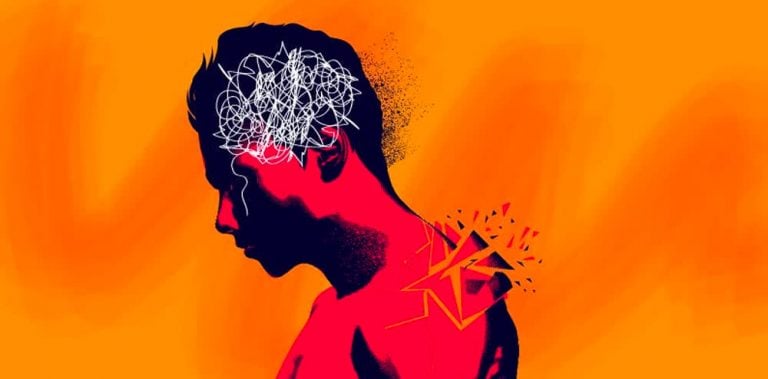If you or someone you know is affected by the following story, you are not alone. To speak to someone, you can call Lifeline on 13 11 14, or 1800 RESPECT on 1800 737 732.
Today, September 9th, is R U OK? Day, a vital day in the Australian calendar. It’s the day when we’re supposed to check in on our friends and family, reaching out to anyone who we perhaps feel is going through a tough time. By doing so, this day says, we can show them that they’re supported and encourage them to access help sooner.
“Trust the signs, trust your gut, and ask R U OK?”. It’s simple and sure advice and it would be lovely if by asking this one question on this one day, we could cure a loved one of their mental frailty. Life, as we’re noticing more and more, is much more cruel than that. 9News posted an uplifting gallery this morning, stating that it showed “the good news stories we all need on this R U OK? Day.” How nice it would be to just bookmark this page and return to it in a dark mood. Life, as has always been abundantly clear, is much more complex than that.
In 2019, the celebrated singer-songwriter David Berman released his final album, Purple Mountains. His fellow musician and confidante Jeffrey Lewis, upon listening to an advanced copy of the record, told anyone who would listen, “this is the most depressed and suicidal record I’ve ever heard…this is the work of a guy who’s about to kill himself.”
If I tell you that Berman died by suicide just two months after Purple Mountains came out, Album as Suicide Note, would you realise how difficult it is to check if someone is really ok? If one of the greatest artists of his generation essentially broadcast how very not-ok he was to thousands and still was lost, can you see that we’re fighting an upward battle?
If I tell you also that a lot of suicides are accidental or regretful, that they leave behind ostensibly happy wives and husbands, blissfully unaware children, shocked mates, would you accept that even if you ask “R U OK?”, the answer might contrast with the outcome? “She told me that he was doing fine, he was battling through”, “they seemed happy, they were cracking a few jokes”, “he was always the life and soul of the party”; these sorts of statements trail suicide as a wicked reminder that hindsight is a despicably fickle thing.
The late author David Foster Wallace compared the act of suicide to facing burning flames: “Their terror of falling from a great height is still just as great as it would be for you or me standing speculatively at the same window just checking out the view. The variable here is the other terror, the fire’s flames: when the flames get close enough, falling to death becomes the slightly less terrible of two terrors.
It’s not desiring the fall; it’s the terror of the flames. And yet nobody down on the sidewalk, looking up and yelling ‘Don’t!’ and ‘Hang on!’, can understand the jump. Not really. You’d have to have personally been trapped and felt flames to really understand a terror way beyond falling” (if I tell you that Wallace also died by suicide, would you begin to note the pattern here?).
Just as we seemed to be having a necessary reckoning with mental health in the last few years, the coronavirus pandemic arrived and made the challenge a whole lot harder. One hopes that we’ll eventually get control of the physicality of the pandemic; the psychic damage from this unparalleled time in history will probably outlive the virus itself.
I have been in lockdown six separate times, totalling over 200 days. Put another way, I have been living in fear and confusion in my own home for over half a year of my life. I have family who have missed out on the first year of uni, which should be the best year of your life; I’ve had friends whose mental health fundamentally depends on them being outside, in touch with others, crumble when left alone; I’ve watched from thousands of miles away as my parents have separated because of the suffocation of this time, yet have to remain locked in the same house together for months after.
These are not normal times. Reminding people to ask their friends or family “R U OK?” one day in September is no longer enough. It’s too dangerous to downplay: we are in a full crisis and more must be done. Start every morning by flicking a text to that friend stuck in lockdown, remind them firmly that you’re there to talk anytime of the day; remember those out of lockdown too, who might be finding the return to normal life a lot to comprehend.
Organise weekly Zoom catch-ups and double check on those who insist they’re too busy to take part. Don’t be afraid to ask explicitly about mental health, that could be the difference. And never stop asking every day, “AM I OK?” too. It’s only through togetherness and community action that we stand any possibility of “R U OK?” Day being a thing of the past.
Dedicated to Simon, who did ask “R U OK?” on Saturday night, August 21st, when it was needed most.

































